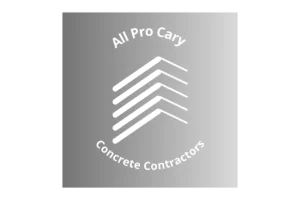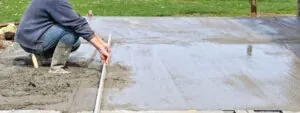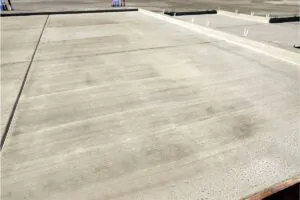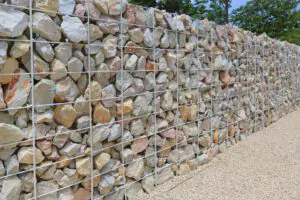When homeowners ask, “Is concrete waterproof?” they address a common concern about its durability. Concrete is not naturally waterproof; it can allow water to seep through tiny cracks or pores. Waterproof concrete is made with special additives to improve its resistance to water. Additionally, there are methods to apply a waterproof coating or sealant to traditional concrete to make it more water resistant. This article explores how waterproof concrete works and its effectiveness against water damage, helping you determine if it suits your home’s needs.
I. What is Waterproof Concrete?
Waterproof concrete incorporates specific additives that reduce its porosity compared to standard concrete. These additives help create a barrier against water infiltration, making it ideal for areas prone to moisture, like basements and roofs. Unlike regular concrete, which may need additional waterproofing treatments, waterproof concrete is designed to resist water from the start, with other steps necessary for the most part. This makes it a preferred choice for long-term solutions to prevent water damage and maintain structural integrity.
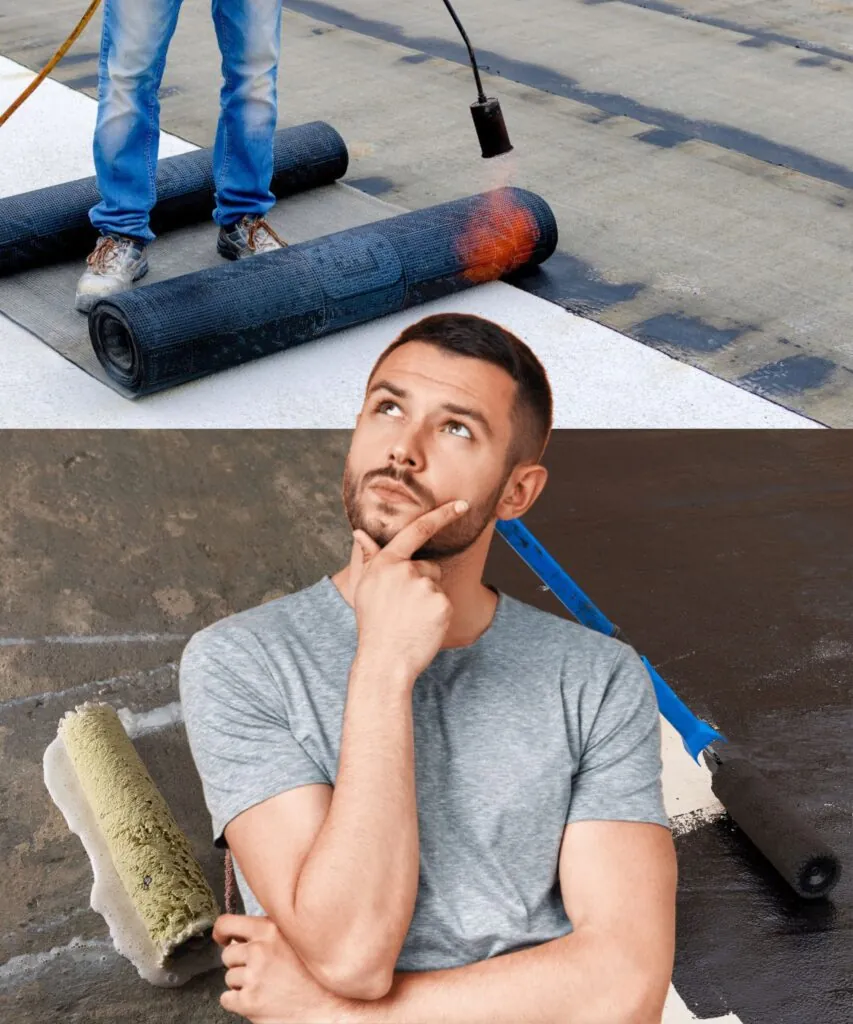
A. Understanding the Term
When asking, “Is concrete waterproof?” homeowners should make sure they understand what the term itself actually means. A waterproof concrete mixture is a unique combination of additives to reduce porosity. This design helps protect structures like basement walls and floors concrete from moisture and corrosion. Integrating these protective substances into the concrete becomes more effective at preventing water penetration than standard concrete. This approach aims to provide a more durable and reliable solution for areas where water damage is a concern.
B. How It Differs from Regular Concrete
Waterproof concrete differs from regular concrete because it contains additives that reduce permeability, eliminating the need for additional waterproof coatings. While regular concrete often requires sealants or other external treatments to prevent water infiltration, waterproof concrete acts as a barrier. The additives essentially seal pores and cracks in the internal makeup of the concrete and prevent water from entering over time. This built-in change to the structure provides added resistance to moisture and improves durability in flood-prone areas.
II. The Strengths of Waterproof Concrete
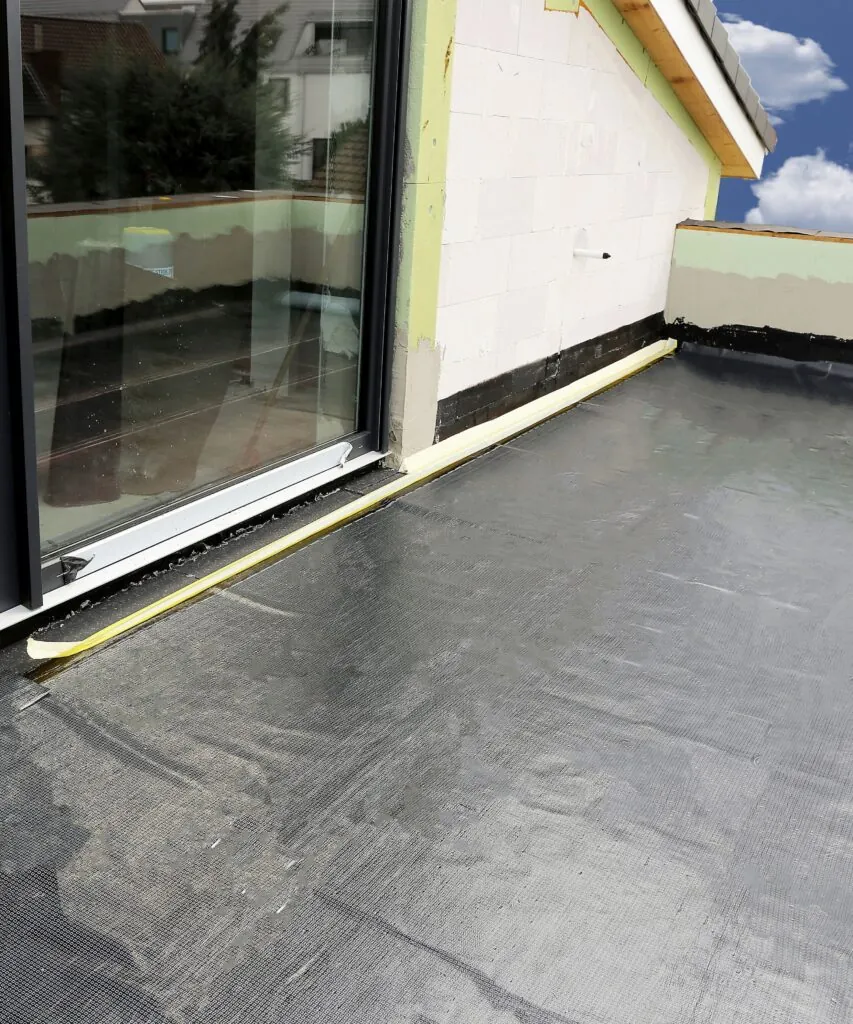
Waterproof concrete offers several critical advantages for construction. It enhances structural strength, reduces maintenance needs, and provides reliable protection against weather and soil interactions. Minimizing moisture penetration through capillary action and slow seepage reduces the need for additional barriers and coatings. This simplifies construction and helps prevent mold growth, leading to a healthier living environment. Waterproofing also lessens the frequency of repairs, providing a durable solution that enhances the longevity and reliability of structures.
A. Improved Structural Strength
Waterproof concrete enhances structural strength by reducing porosity and improving durability against water exposure. Unlike standard concrete, which can absorb moisture and weaken over time, waterproof concrete incorporates additives that react with cement to form a denser material. This increases resistance to humidity and water damage, which helps maintain structural integrity and reduces the need for costly repairs. Its improved strength makes it suitable for applications where water exposure is a concern, ensuring long-lasting performance.
B. Reduced Maintenance
Waterproof concrete requires less maintenance than standard concrete, often requiring additional protective coatings like epoxy. Its formulation offers excellent resistance to salt and water corrosion, minimizing the need for frequent upkeep. This inherent durability helps lower long-term maintenance costs and ensures the concrete remains effective across various environmental conditions. As a result, homeowners and commercial builders alike can enjoy reduced maintenance efforts and improved longevity of concrete features and components.
C. Protection Against Elements
Waterproof concrete is engineered to endure environmental stressors such as erosion and moisture. Its increased density and water-resistant properties create a robust composition that protects against the damage caused by ongoing water exposure. This makes it a dependable choice for safeguarding buildings against the effects of weather and moisture over time. By offering enhanced protection, waterproof concrete helps maintain buildings’ structural integrity and appearance in challenging conditions and slows the effects of usual wear and degradation.
III. Limitations of Waterproof Concrete
Despite improvements in concrete technology, high-quality waterproof concrete is not entirely impervious to water. While waterproof concrete offers significant benefits, it does not eliminate the need for careful installation and maintenance to address potential vulnerabilities. There may also be situations where additional care or steps are needed to ensure the concrete application is made to the best possible results. Here are some things to consider when looking at the downside of waterproof concrete:
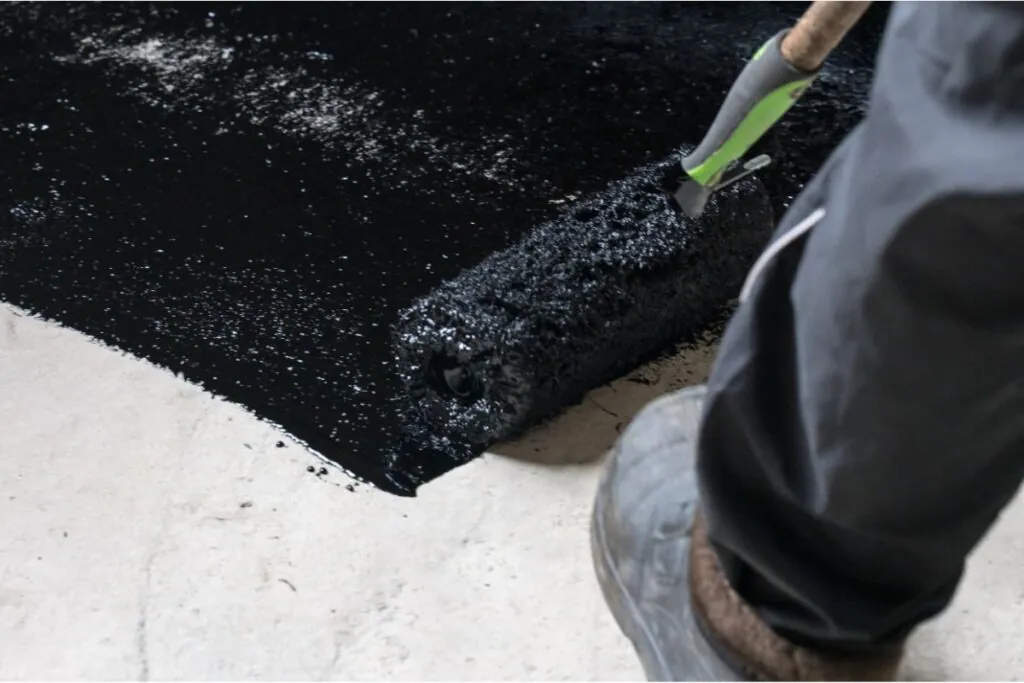
A. Not 100% Waterproof
Waterproof concrete significantly improves moisture resistance compared to standard concrete, but it is not entirely waterproof. Water can still infiltrate through the concrete under extreme conditions, such as high hydrostatic pressure, or if standing water is left for extreme periods, such as during long-term flooding. This issue can affect other construction elements, such as shotcrete used in pools or underground structures and foundations under the concrete. This, in turn, can compromise the longevity of concrete or tile installations in persistently wet environments. Thus, while waterproof concrete offers enhanced protection, it cannot guarantee absolute impermeability in all situations.
B. Vulnerability to Water Ingress
Despite its advanced properties, waterproof concrete can remain vulnerable to water ingress if defects or cracks develop over time. If cracks and other damage occur, little will stop water from seeking out these spots other than prompt sealing of all cracks, no matter how small. Continuous exposure to water can exacerbate these vulnerabilities, potentially leading to moisture infiltration. Additional waterproofing measures or repairs may be required to maintain adequate protection. Regular inspections and maintenance are necessary to address any issues promptly and ensure the concrete continues to perform as intended. A little time and effort will ensure your concrete holds up well.
IV. When to Use Waterproof Concrete
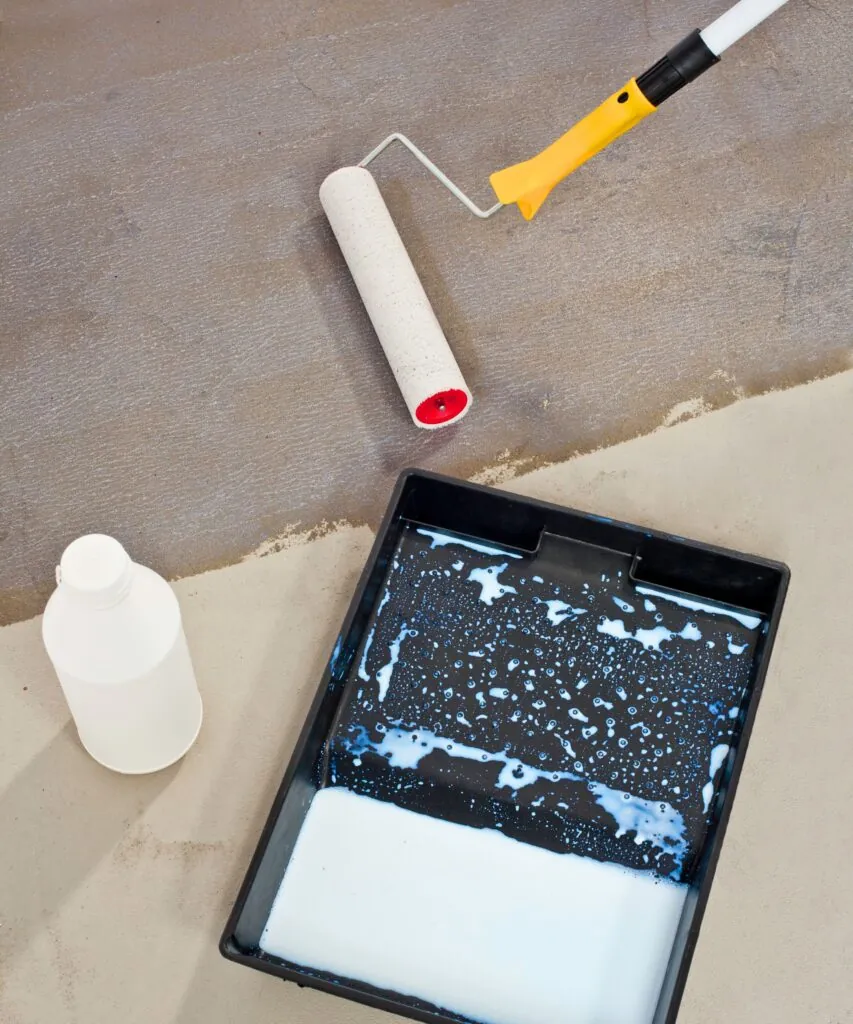
Aside from the question, “Is concrete waterproof?” homeowners may also ask when they can use such material for their homes. Using waterproof concrete at the right time is essential for ensuring the durability and effectiveness of a structure. It is especially beneficial in applications where high moisture exposure is expected. In these cases, waterproof concrete’s ability to repel moisture significantly improves the structure’s longevity. For less critical uses, it provides adequate protection without the higher costs associated with more intensive waterproofing methods.
A. Water Retaining Structures
Waterproof concrete is highly effective for constructing water-retaining structures such as pools, reservoirs, and dams, where preventing water leakage is essential. Its formulation includes additives that significantly reduce permeability, ensure water does not seep through, and compromise the structure’s stability. By using waterproof concrete in these high-risk applications, builders can effectively manage and contain water, enhancing the durability and reliability of the structure. This makes it an optimal choice for maintaining the integrity of structures exposed to constant moisture, ensuring they perform well over their intended lifespan.
B. Less Critical Basements
Waterproof concrete provides adequate protection for basements where excessive moisture is not a significant issue, such as those used for storage or in areas with low water tables. It helps maintain a dry environment while offering cost savings compared to more intensive waterproofing methods. This approach is practical for less critical applications, balancing effectiveness with budget considerations. Waterproof concrete in such scenarios delivers sufficient moisture control without additional expensive treatments, making it a sensible choice for maintaining a dry and functional basement.
Understanding Concrete's Water Resistance: Final Thoughts
Concrete is not waterproof by itself, but incorporating specialized additives can improve its ability to resist moisture and enhance its structural durability. Waterproof concrete provides a built-in defense against water infiltration, effectively reducing the risk of leaks and water damage in critical areas like basements, pools, and roofs.
However, it is not completely waterproof; under severe conditions or with inadequate maintenance, moisture can still penetrate, potentially causing issues like mildew. Homeowners should carefully evaluate their specific environmental conditions and the intended use of their structures to maximize waterproof concrete while understanding its limitations.
If you have questions about what concrete options are suitable for you, call your local pros today for customized help that fits your unique situation and needs!
